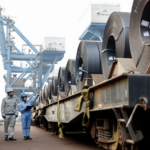
Illustrative image
According to the Times of India, India will maintain its policy of purchasing oil from any source that offers the best deal, despite pressure from the US regarding imports of Russian crude oil. This statement was made by India’s Ambassador to Moscow, Vinay Kumar, in an interview with the TASS news agency on August 24th.
The remarks came after Washington imposed an additional 25% tariff on imports from India, bringing the total tariff rate to over 50%. Mr. Kumar criticized this move as “unfair, irrational, and unjustified.”
“Our priority is energy security for 1.4 billion people. India’s cooperation with Russia, as well as many other countries, has contributed to the stability of the global oil market. The US decision is unfair, and the Indian government will continue to take measures to protect its national interests,” emphasized Mr. Kumar.
According to the ambassador, India’s trade decisions are guided by market factors rather than political pressure. “If there is a valid commercial rationale, Indian companies will buy from wherever they get the best deal. That is the principle at present,” he said, noting that even the US and Europe continue to engage in certain transactions with Russia.
Ambassador Kumar’s views align with those expressed by India’s External Affairs Minister S. Jaishankar at the World Economic Forum earlier. Mr. Jaishankar called the US tariffs “unreasonable and baseless,” asserting that New Delhi will not compromise due to the interests of its farmers and small producers.
Regarding the payment for oil imports from Russia, Mr. Kumar stated that transactions were facilitated by the bilateral local currency payment system. “There are currently no issues with regard to oil imports payment,” he asserted.
Beyond energy, New Delhi aims to boost exports to Russia in sectors such as electronics, automobiles, textiles, construction materials, as well as digital services, finance, and information technology. “Exports have grown but are still far below their potential,” he said.
According to Reuters, Russia’s crude oil exports to India have plummeted in August as European sanctions and US tariff moves are reshaping global energy trade flows.
Data from the marine freight analytics firm Kpler shows that shipments of Russia’s Ural oil to India have dropped to around 400,000 barrels per day in August, a significant decline from the average of 1.18 million barrels per day in the first half of the year. This follows a steady trend in June and July.
Steel Giant Hoa Phat Avoids Anti-Dumping Duty on Hot-Rolled Coils in India
The Directorate General of Trade Remedies (DGTR) of India has announced its final conclusion regarding the anti-dumping investigation into hot-rolled coil (HRC) steel imports from Vietnam. As a result, HRC products manufactured by Hoa Phat Group Joint Stock Company (HOSE: HPG) will not be subject to anti-dumping duties.
Can EVN Recover from a Staggering $1.9 Billion Loss Without Hiking Electricity Tariffs?
Many are concerned that accounting for EVN’s accumulated loss of 44,792 billion VND in the average retail electricity price will lead to another hike in electricity tariffs, just three months after the last increase.




















